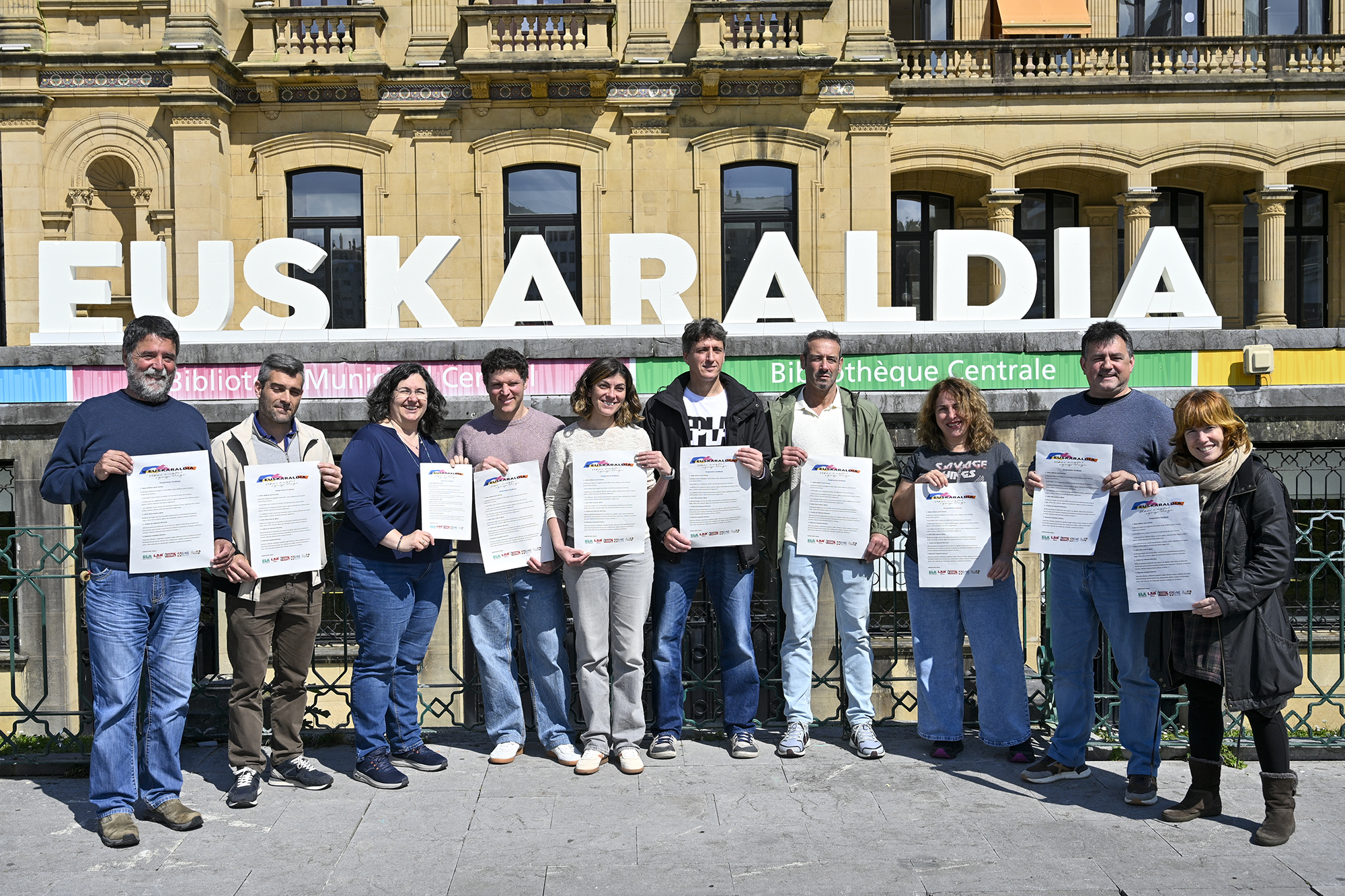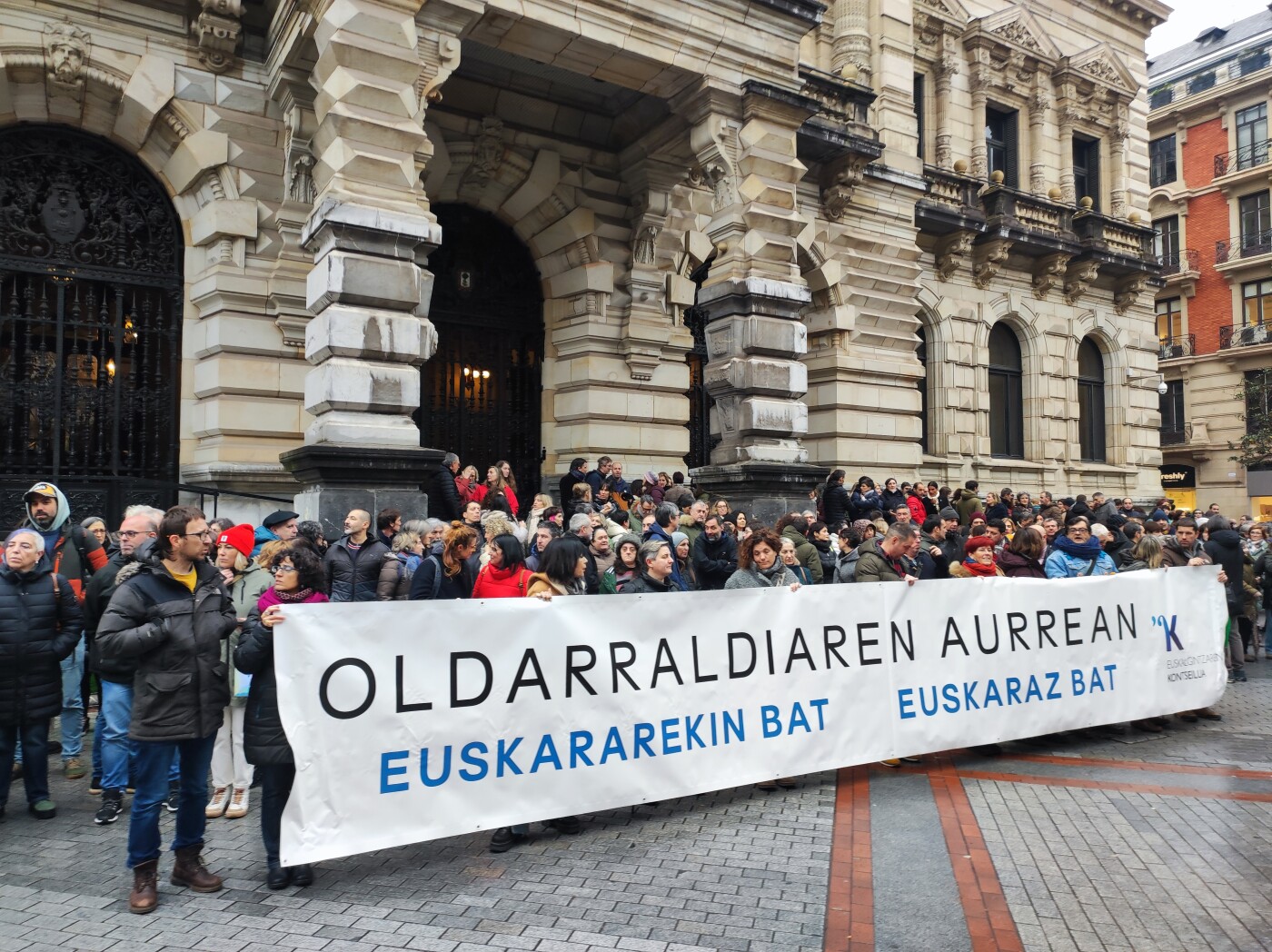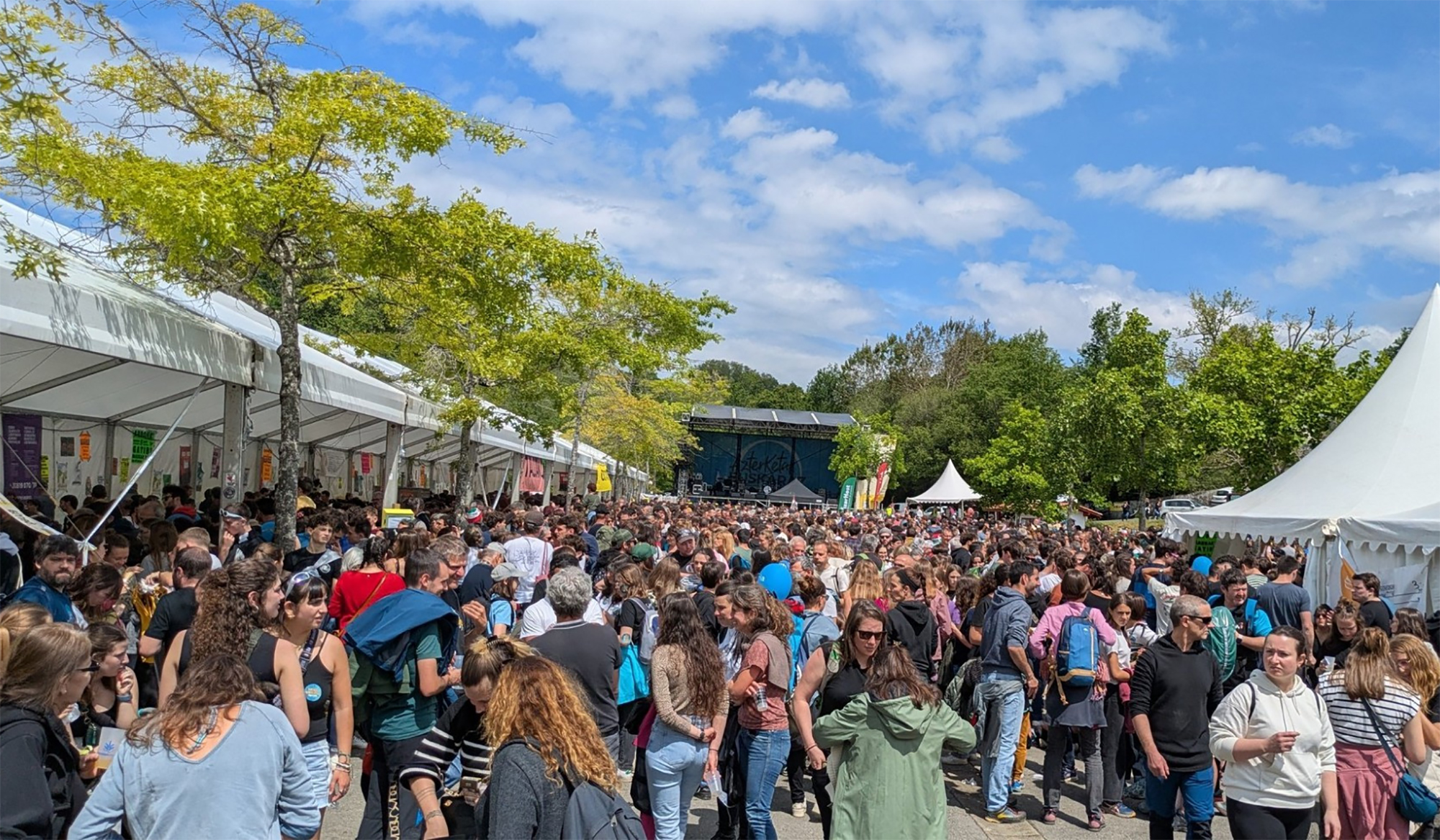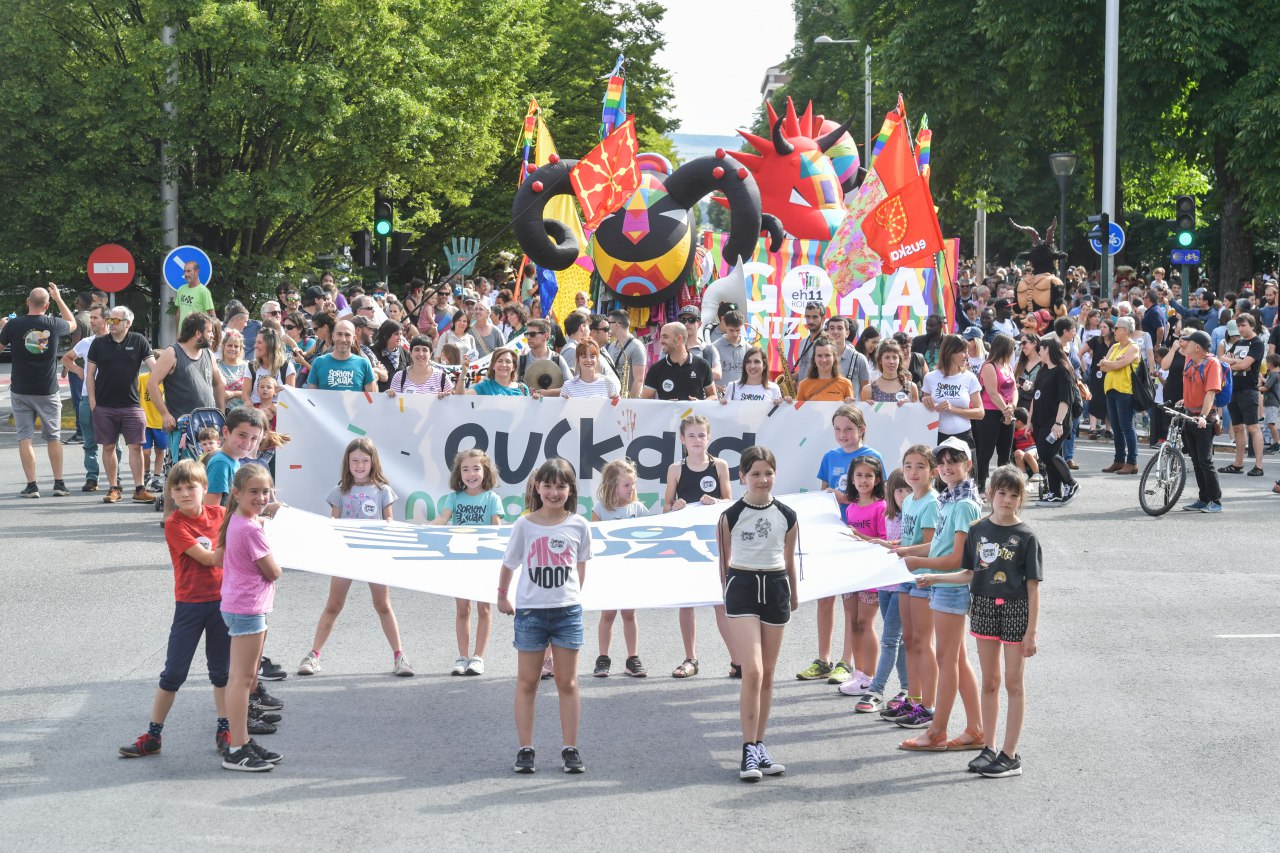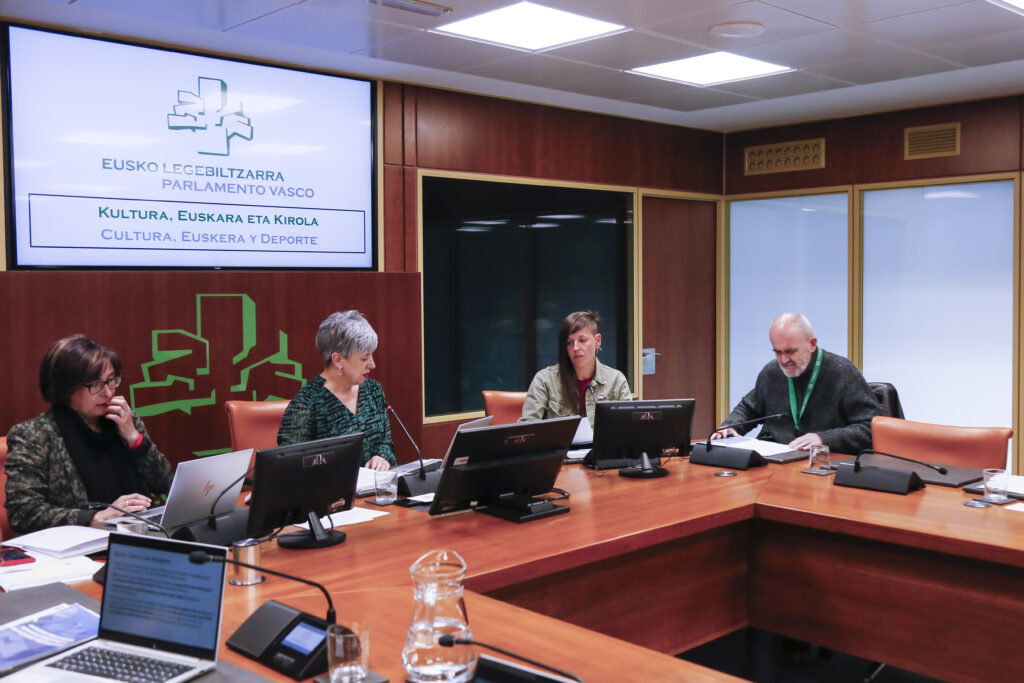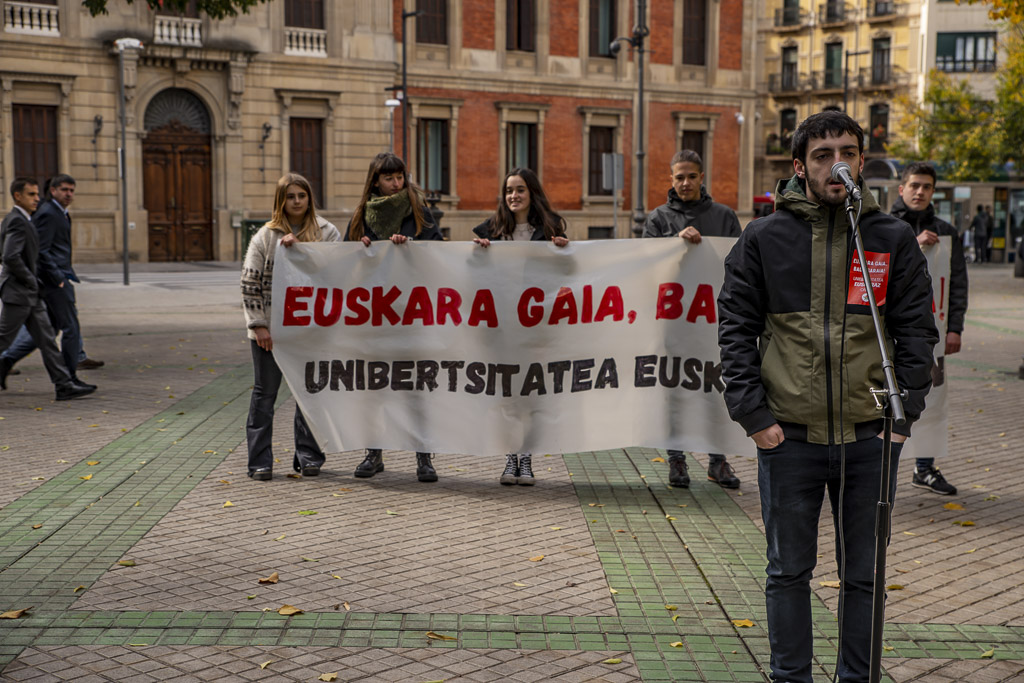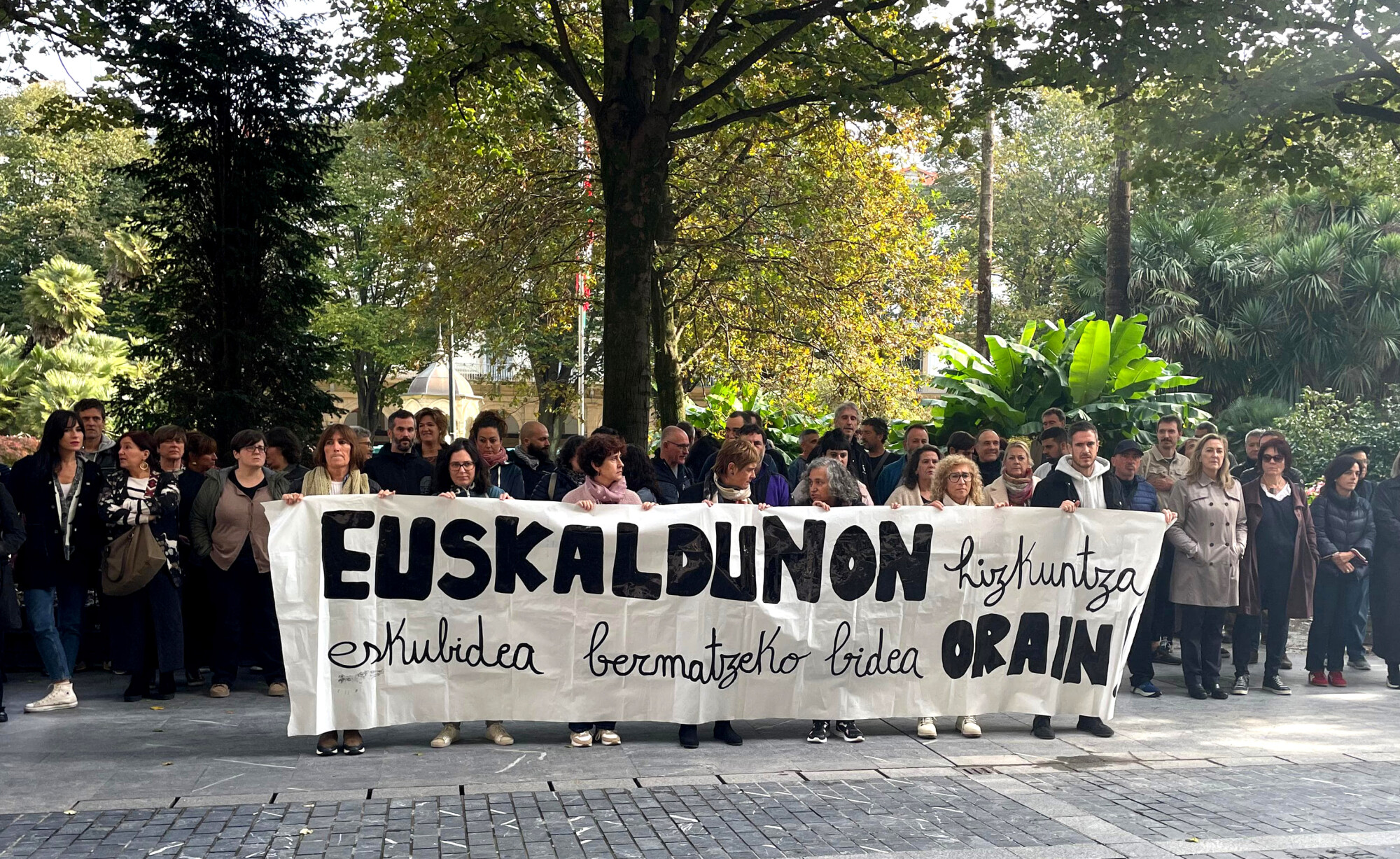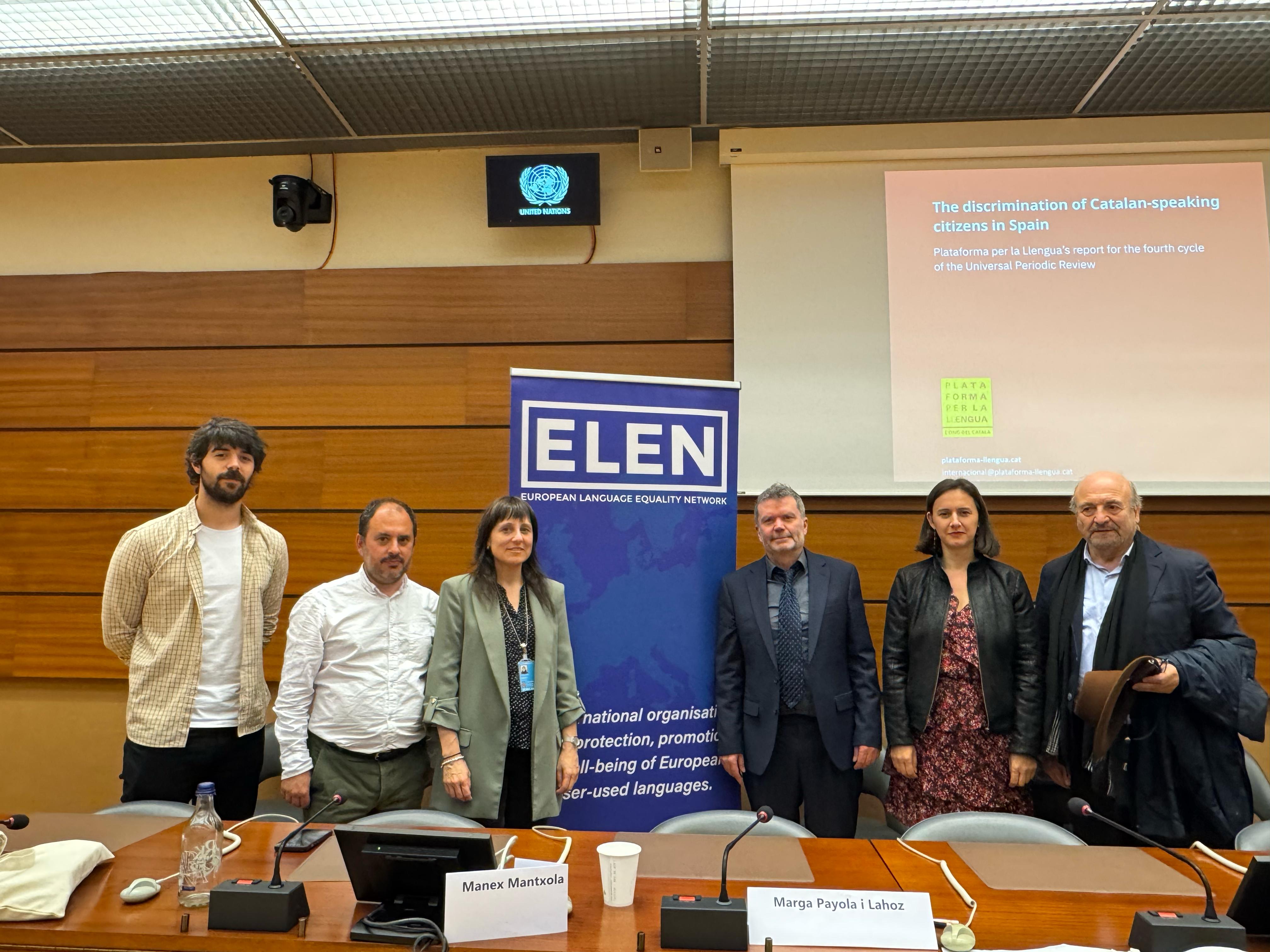We want to strengthen and extend free public simultaneous translation services
- We propose to the Vice-Ministry of Language Policy of the Basque Government the dissemination and provision of simultaneous translation services. For ALS, having Euskera at the center of our activity is a strategic decision.

On the one hand, the Basque Country is an essential element to take root the collective character of our sphere of struggle in the Basque Country; the Basque Country unites us, all those who want to fight for a fairer world, on the same line of solidarity; the Basque Country gives us in large measure the awareness of belonging to a collective.
On the other hand, Euskera has a counter-cultural value in the process of cultural homogenization that drives neoliberal hegemony, and a class union must disseminate the values contrary to this hegemony.
In short, the solidarity network and the collective imaginary offered by the counter-hegemonic language to build another Basque Country must be at the heart of our activity. Just as class consciousness unites us to the social struggle, the Basque Country unites us to the land in which this struggle is going to take place.
We would like to take further qualitative steps. We are convinced that, like us, other social partners are willing to do this kind of betting.
But ALS’s activity takes place in society, and Euskera is rooted in this society. Moreover, the fight against precariousness is our trade union’s main stake in collective bargaining. Well, when we look at the most precarious areas, Spanish-language communication itself becomes a challenge. Recently we had an assembly of 50 room cleaners from two hotels in Bilbao: most were foreigners. For ELA, the main challenge of the Basque Country in this space is to turn our language into an essential element to make us part of the Basque society, in relation to the space of union and social struggle. But how are we going to approach those people?
Within the union we have taken important steps in the use of the Basque country. Among the people who are now fully liberated in the union, the knowledge of the Basque is 87%. However, customs and inertia must be tackled, because levels of knowledge and use are not yet matched.
We would like to take further qualitative steps. We are convinced that, like us, other social partners are willing to do this kind of wagering. As a first step, the strengthening and dissemination of simultaneous translation services can be a very effective contribution, and like the Basque Government, the provision of this service by other public institutions to agents willing to use Euskera can multiply the use of Euskera and make it much easier for the use of Euskera to become a real right in collective areas.
If we had the opportunity to use the simultaneous translation service, it would be much easier if the need could be started in Euskera, on the one hand, and, on the other hand, the need for Euskaldunes to always work on the demand and comfort of the activity. The use of Euskera in many meetings would not become a problem and, furthermore, we sincerely believe that, on the road to normalization of the use of Euskera, the publication and generalization of this service can take a qualitative leap forward, as it would allow us to extend the use of Euskera to the institutions and associations that we are well integrated into society.
Imagine the possibilities that would open up in the government, in the Foreign Ministers, or in the municipalities and communities through the implementation of simultaneous translation services, either for the needs of the institutions, or for the centres of the locality, or for the needs of all kinds of associations!
This request has already been referred to the Vice-Minister for Linguistic Policy of the Basque Government. We are waiting for the answer, hopeful, among other things, because it would help to perpetuate the Basque Country.
The strengthening and deployment of free public simultaneous translation services would greatly facilitate the work of trade unions and other Basque institutions, making it possible to take significant steps towards the normalization of the use of the Basque Country; moreover, taking into account our ability to influence the world of work (and therefore society), the impact would extend beyond trade unions.
In general, the linguistic rights of all Euskaldunes would be respected to a greater extent than at present. We also remember the meetings of parents of schools, the partners of sports associations, the meetings of all kinds of entities and associations...
This request has already been referred to the Vice-Minister for Linguistic Policy of the Basque Government. We are waiting for the answer, hopeful, among other things, because it would help perpetuate the Euskaraldia.En ELA we are willing to collaborate.
Pello Igeregi.
Head of the Basque Country of ELA.
Maiatzaren 15etik 25era izango da Euskaraldia. Laugarren edizioa da eta antolatzaileek aurtengoa “herrikoiagoa eta ilusionagarriagoa” izatea dute helburu. Izan ere, hirugarren edizioan apalaldia sumatu zuten, pandemia garaiko Euskaralditik burua altxa ezinda. Ostegun... [+]
Euskaraldiaren atarian, beste behin, Pantailaldia egingo da. Maiatzaren 6tik 15era iraungo du, eta euskarazko ikus-entzunezkoen kontsumoa sustatzea izango da helburua.
Baina non gaude, non dago euskara ikus-entzunezkoen mundu zabalean, nora goaz? Zein hutsune, zein erronka... [+]









